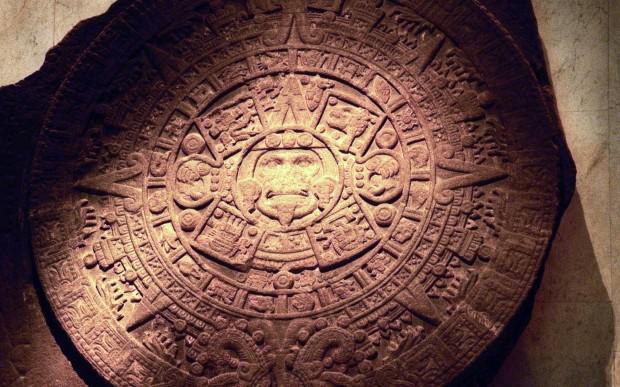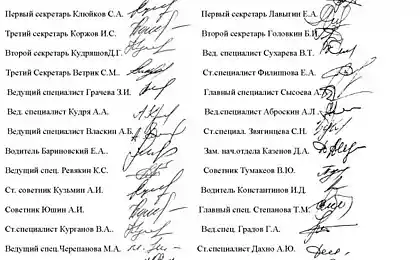484
The years from 618 th to 907 in the history of many civilizations missing
Tale of Lost vremeni
Surely every once in your life I am asking myself, where did delos time. Maybe it quietly flew the conversation with a friend or at work. Sometimes an hour may seem minute, week - day and year - month. For those who lived in the period from 614 th to 911 th year n. e., it may seem that this long period of 297 years had never been.
Let's start from the beginning ... the beginning of the countdown. It is believed that the oldest calendar in the world dates back to the 8000-th BC. e .: hunter-gatherers who lived in the territory of modern Scotland, have created a primitive calendar takes into account the changing phases of the moon and the seasons. With the development of every civilization in the world created its own calendar, which is also often taken into account the phase of the moon - this was in Babylon and Maya.
In the I century BC. e. The Roman Empire conquered peoples imposed on your calendar. He appeared in the 46th BC. e. and it was based on the movement of the sun. In it it was 365 days and 12 months - this is the famous Julian calendar. This calendar used in most European countries over the next 1600 years, until Pope Gregory XIII introduced the Gregorian calendar was not in 1582, the year.

In fact there were three reasons for this: he wanted to Easter always coincide with the day of the vernal equinox; it was necessary to remove the ten-error because the Julian calendar every year lacked 11 minutes and 14 seconds; as it was necessary to change the rules for leap year - is now too much of the day was not in years divisible by 100, unless they are divisible by 400. The introduced changes have taken root, and the Gregorian calendar we still use today.
German historian Herbert Illig in 1911 he published the hypothesis that we are not living in 2013, the year, and in 1716-m - "not enough" 297 years. These missing or accidentally lost years due to the misrepresentation of documents, either because of deliberate falsification. Of course, a certain amount of time was actually lost, which may be associated with the replacement of calendars for entire centuries - human errors and failures are inevitable.
Pope Gregory XIII really made a mistake, but he has lost a total of 13 days, not 297 years. The error was insignificant. But 297 years really "gone": built in the year 800 BC. e. architectural structures, for example, were no different from the buildings 200 years later. Documentation about the growth of Islam in Persia and Europe for this period is absent, and there is no information about the actions of the Jewish people in times of great turmoil - these 297 years "absent" in many civilizations.
However, Asian "waste of time" for some reason did not touch: for example, in China in the period from 618 th to 907 th year of the Tang dynasty, what were written evidence. Thus, someone in medieval Europe had to convince the Chinese to create fake dynasty that was quite difficult.
Believe it or not - a private matter. It's like with Santa Claus, if there is no evidence of its existence, it does not mean that it does not exist.
via factroom.ru

Surely every once in your life I am asking myself, where did delos time. Maybe it quietly flew the conversation with a friend or at work. Sometimes an hour may seem minute, week - day and year - month. For those who lived in the period from 614 th to 911 th year n. e., it may seem that this long period of 297 years had never been.
Let's start from the beginning ... the beginning of the countdown. It is believed that the oldest calendar in the world dates back to the 8000-th BC. e .: hunter-gatherers who lived in the territory of modern Scotland, have created a primitive calendar takes into account the changing phases of the moon and the seasons. With the development of every civilization in the world created its own calendar, which is also often taken into account the phase of the moon - this was in Babylon and Maya.
In the I century BC. e. The Roman Empire conquered peoples imposed on your calendar. He appeared in the 46th BC. e. and it was based on the movement of the sun. In it it was 365 days and 12 months - this is the famous Julian calendar. This calendar used in most European countries over the next 1600 years, until Pope Gregory XIII introduced the Gregorian calendar was not in 1582, the year.

In fact there were three reasons for this: he wanted to Easter always coincide with the day of the vernal equinox; it was necessary to remove the ten-error because the Julian calendar every year lacked 11 minutes and 14 seconds; as it was necessary to change the rules for leap year - is now too much of the day was not in years divisible by 100, unless they are divisible by 400. The introduced changes have taken root, and the Gregorian calendar we still use today.
German historian Herbert Illig in 1911 he published the hypothesis that we are not living in 2013, the year, and in 1716-m - "not enough" 297 years. These missing or accidentally lost years due to the misrepresentation of documents, either because of deliberate falsification. Of course, a certain amount of time was actually lost, which may be associated with the replacement of calendars for entire centuries - human errors and failures are inevitable.
Pope Gregory XIII really made a mistake, but he has lost a total of 13 days, not 297 years. The error was insignificant. But 297 years really "gone": built in the year 800 BC. e. architectural structures, for example, were no different from the buildings 200 years later. Documentation about the growth of Islam in Persia and Europe for this period is absent, and there is no information about the actions of the Jewish people in times of great turmoil - these 297 years "absent" in many civilizations.
However, Asian "waste of time" for some reason did not touch: for example, in China in the period from 618 th to 907 th year of the Tang dynasty, what were written evidence. Thus, someone in medieval Europe had to convince the Chinese to create fake dynasty that was quite difficult.
Believe it or not - a private matter. It's like with Santa Claus, if there is no evidence of its existence, it does not mean that it does not exist.
via factroom.ru
EGOT - a combination of the most prestigious awards in the world of show business
Once again it proved that multivitamins are useless























